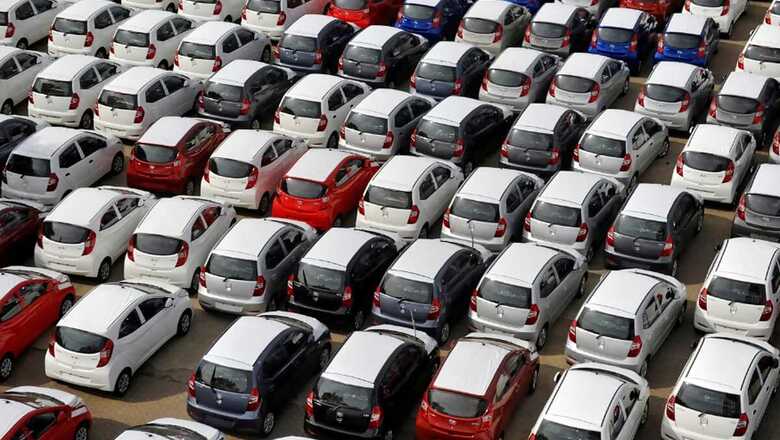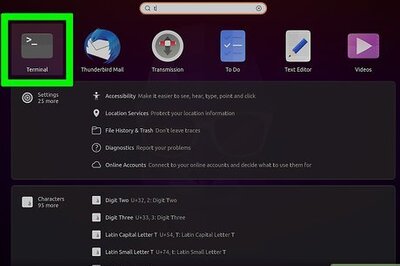
views
In the recently present Union Budget 2021, Finance minister Nirmala Sitharaman announced the much-awaited “Vehicle Scrappage Policy". Soon after, Union Minister for Road, Transport and Highways Nitin Gadkari revealed the details in a recent Lok Sabha session and notified the new vehicle scrappage policy mentioning that the full roll-out of the policy will take place in the next 15 days. While the new scrappage policy is voluntary, it would require mandatory fitness tests for vehicles after certain duration. We try to decode what exactly is the new scrappage policy and why industry is beaming with hope. Here’s our FAQ:
Q.What exactly is Vehicle Scrappage Policy?
Much like the western countries, the scrappage policy comes into effect when a vehicle’s lifecycle is complete. In general, a passenger vehicle has a life of 20 years and a commercial vehicle has a life of 15 years, after which they become obsolete and also starts polluting the environment at a greater intensity than they would have been doing earlier. In western countries, these old vehicles are sent to scrapyards where they are dismantled and the steel used for making the body is crushed and recycled again. In India though, there’s no such policy. Most of the vehicles either are on run currently polluting the environment or are lying at road sides.
Q.What does the policy aim to achieve?
As explained above, a vehicle should be scrapped at the end of its lifecycle so that they are stopped running on roads that will reduce air pollution. Also, getting off older vehicles will generate space for new vehicles, which will boost the sales in the otherwise battered and bruised Indian auto industry. As of now, there are no clear guidelines on the policy. However, what is understood from Nitin Gadkari’s presentation is that commercial vehicles older than 15 years and personal vehicles which are older than 20 are eligible for scrappage.
Q.Will all vehicles over and above time limit will be scrapped?
No, not all vehicles will be scrapped as this is a voluntary scheme and not a mandatory one. However, there’s a catch here. All vehicles over and above the time limit (15 and 20 years) will have to undergo mandatory fitness test. If a vehicles fails fitness test, they will not get renewal certificate and won’t be able to run on road. However, if they pass fitness test, they will have to undergo fitness test after every 5 years again to show their road worthiness.
Q.What benefit will I get from scrapping my vehicle?
While more details, such as incentives and monetary benefits will be disclosed once the policy is rolled out, Nitin Gadkari has given following financial benefits one can get from the policy-
1) A scrap value of the ex-showroom price of vehicle ranging from 4-6% will be given to the owner if they choose to scrap the vehicle
2) A rebate of upto 25% will be given in Road Tax
3) Vehicle manufacturers will be advised to give 5% discount on new vehicles against a scrapping certificate
Industry experts are saying that in order to implement this policy successfully govt will have to offer good incentive scheme, else owners will flout the rules in hope of saving money.
Q.What is a fitness test?
A fitness test, much like Pollution Under Control (PUC) certificate test, determines the road worthiness of a vehicle and checks if the vehicle is harming the environment. But that’s one aspect of it. Various other tests like brake test, engine performance among others will be in place to check the quality of the vehicles. A fitness test, according to Nitin Gadkari, will be conducted at automated fitness centres. These centres will be established under PPP model and it is estimated that each fitness test will set you back by at least Rs 30,000-40,000 and a green cess will also be levied while renewing the vehicle registration. Govt is hoping that all these additional costs will dissuade vehicle owners from retaining the vehicle.
Q.What happens if my vehicle doesn’t pass the fitness test?
Simply put, you won’t be given a renewed registration certificate which means your vehicle is not registered to run on the road. As per the MV Act, it’s illegal to drive a car without a RC. Reports suggests that you can undertake a fitness test only three times post which your vehicle will anyways won’t be road worthy.
Read all the Latest News, Breaking News and Coronavirus News here




















Comments
0 comment